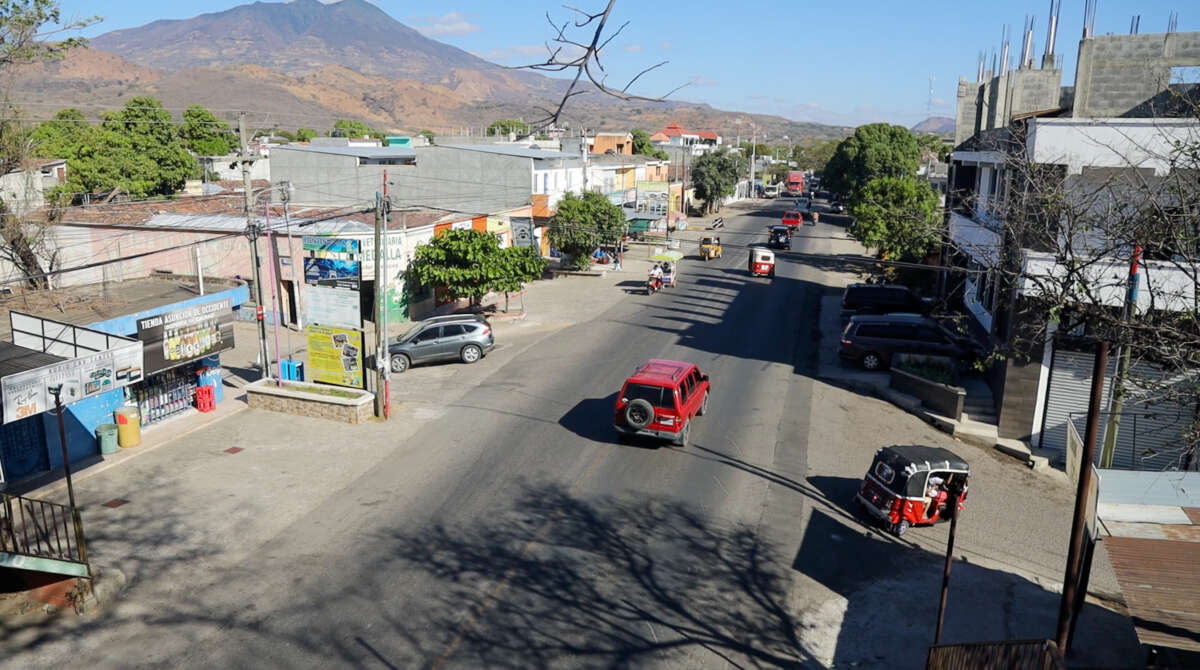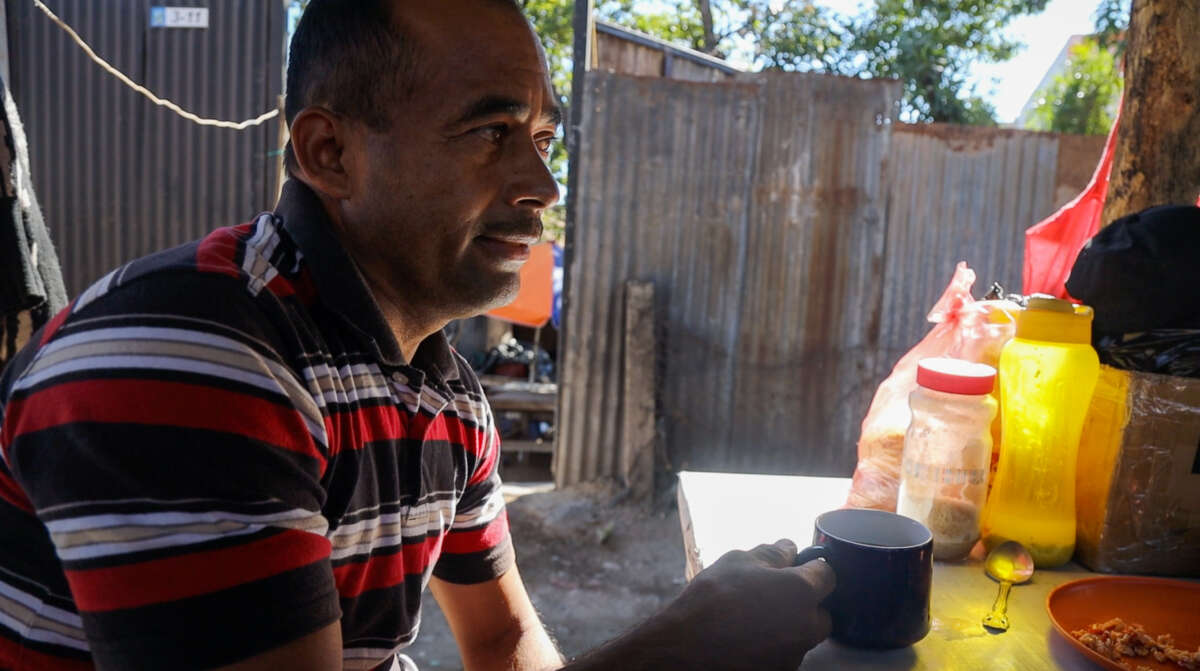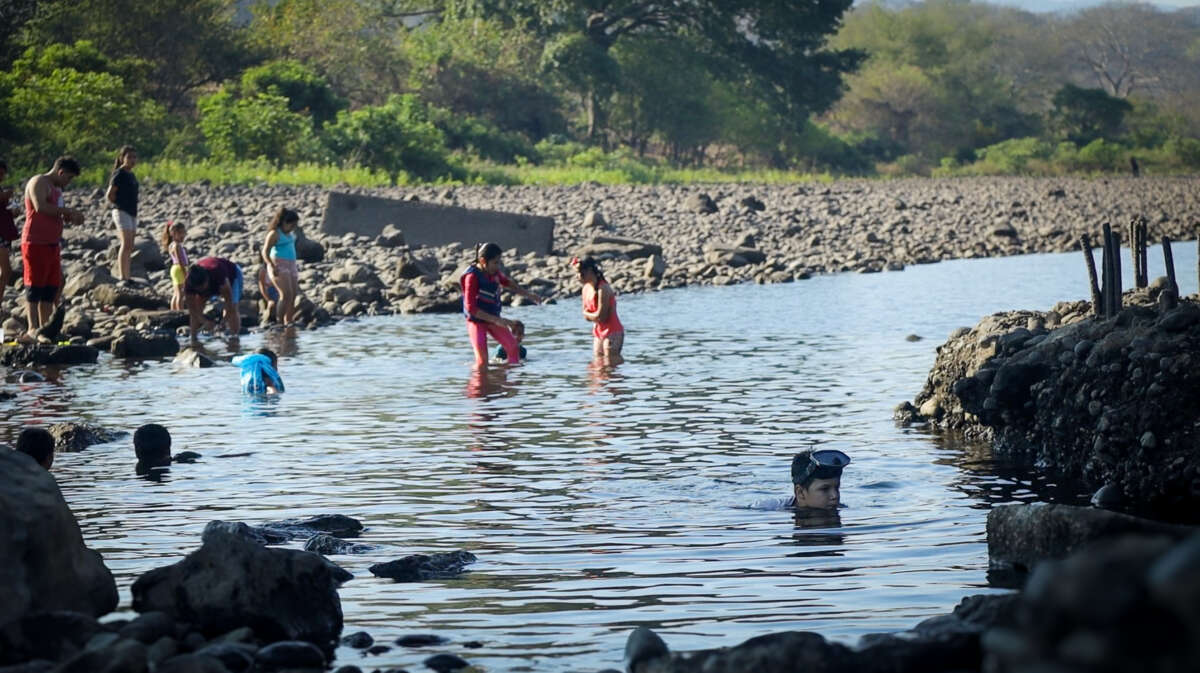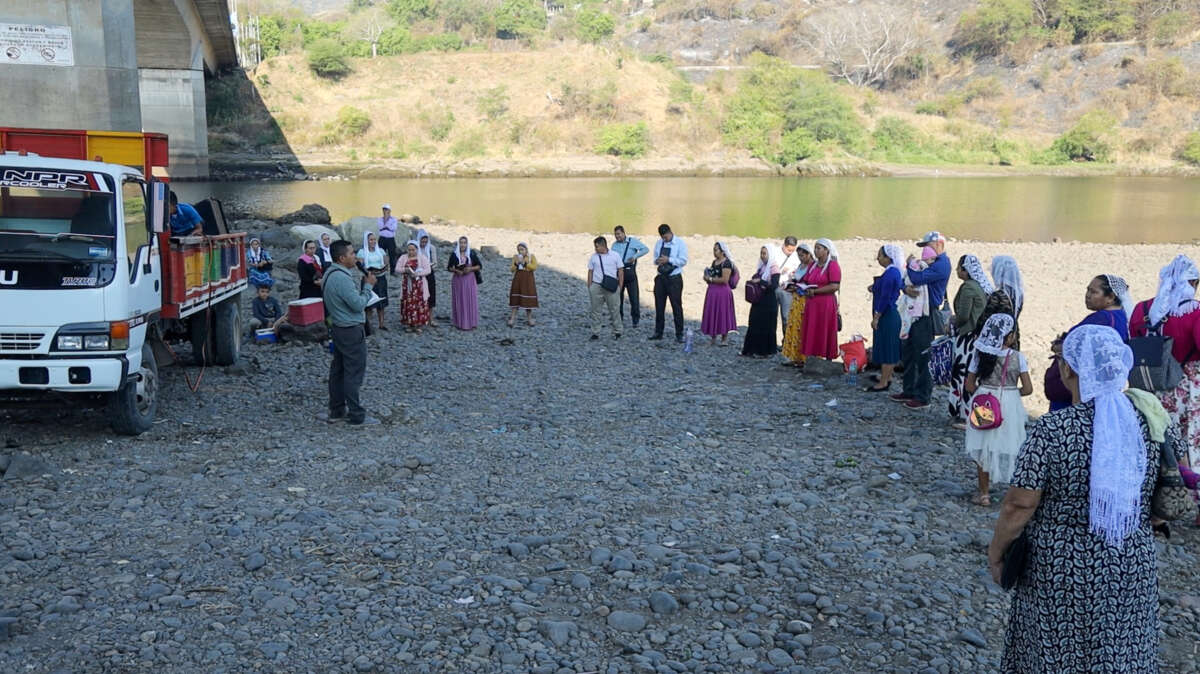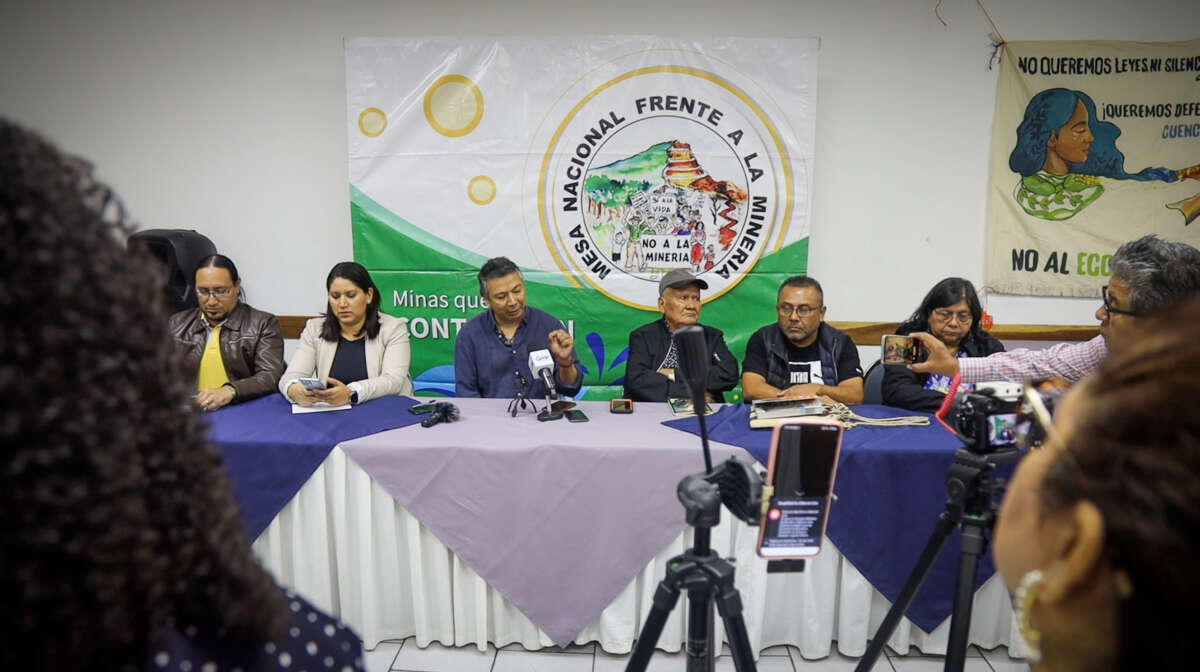The ICC Takes on Israel and the US Congressional Mafia
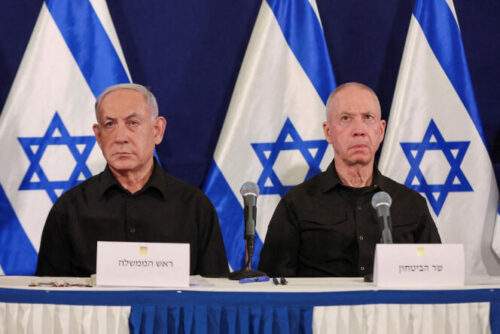 Israeli Prime Minister Benjamin Netanyahu and Israeli Defense Minister Yoav Gallant at a press conference in Tel Aviv on October 28, 2023. POOL / VIA REUTER
Israeli Prime Minister Benjamin Netanyahu and Israeli Defense Minister Yoav Gallant at a press conference in Tel Aviv on October 28, 2023. POOL / VIA REUTER
Senator Lindsay Graham was bursting with contempt for the International Criminal Court (ICC) when he grilled Secretary of State Blinken at a May 21 Congressional hearing. Wagging his finger, he warned that, if the ICC gets away with issuing arrest warrants for Israel’s Prime Minister Benjamin Netanyahu and Defense Minister Yoav Gallant, “we are next.”
The audience at the hearing, stacked with CODEPINK pro-Palestine supporters, burst out in applause at the notion of the US being hauled before the world’s highest court. “You can clap all you want,” an angry Graham retorted, “but they tried to come after our soldiers in Afghanistan.” Graham was thankful that in the Afghan case “reason prevailed” when the case was dropped, adding that the US must level sanctions against the ICC “not only to protect our friends in Israel but to protect ourselves.”
Graham was referring to the 2019 efforts of former ICC prosecutor Fatou Bensouda to hold both the Taliban and the US accountable for war crimes in Afghanistan. When Graham said that “reason prevailed,” he really meant that US thuggery prevailed because the Trump administration brazenly imposed sanctions against ICC officials, denying them visas to the US and freezing their assets in US banks. President Biden lifted the sanctions but did so with the tacit understanding that the court would not resume the probe of US crimes in Afghanistan. The message from both Democratic and Republican presidents was clear: Do not dare hold the US to the same standards you use for others.
The International Criminal Court was founded in 1998 as the result of a lifetime’s work by an American (and Jewish) international lawyer, Benjamin Ferencz, rooted in his experience as an investigator and chief prosecutor at the Nuremberg tribunals after the Second World War. Ben passed away in 2023 at the age of 103, but the universal jurisdiction that the court is exercising in this case is the fruition of his life’s work to hold war criminals accountable under international law, no matter what country they are from or who their victims are.
Enter Israel. The ICC has been building a case against Israel for nearly a decade. A recent blockbuster investigation by the Guardian and two Israeli-based news outlets revealed a shocking almost decade-long secret campaign against the court by Israeli intelligence agencies, who surveilled, hacked, pressured, smeared and threatened ICC officials in an effort to derail the court’s inquiries.
Despite the pressure, on May 20, ICC prosecutor Karim Khan made his request for Israeli and Hamas arrest warrants. Among the charges against the Israeli officials are extermination, using starvation as a method of warfare, willfully causing great suffering, and intentionally directing attacks against a civilian population.
Prosecutor Karim Khan’s request has now gone to a panel of three judges who will determine in the coming weeks whether the request is granted. But pro-Israel forces in the US are trying their best to throw sand in the wheels of justice with threats of new sanctions.
One ultimatum already came from Senator Tom Cotton and 11 other Republican senators in a toxic April 24 letter. “Target Israel and we will target you,” the senators signaled to the ICC. “If you move forward with the measures indicated in the report, we will move to end all American support for the ICC, sanction your employees and associates, and bar you and your families from the United States.” The letter concluded with a hair-raising: “You have been warned.”
The Biden administration has responded to the ICC by flip flopping like a fish on dry land. On May 20, the White House put out a statement calling the ICC prosecutor’s application for arrest warrants against Israeli leaders “outrageous”, adding “Whatever this prosecutor might imply, there is no equivalence — none — between Israel and Hamas. We will always stand with Israel against threats to its security.” Secretary of State Anthony Blinken called the request “shameful.” At a hearing on May 22, he told Senator Graham that he welcomed working with him on efforts to sanction the ICC.
But on May 28, National Security Council Communications Advisor John Kirby said at a White House press briefing, “We don’t believe that sanctions against the ICC is the right approach here.” White House press secretary Karine Jean-Pierre, who spoke after Kirby, reiterated that message. She said that legislation against the ICC “is not something the administration is going to support” and that “sanctions on the ICC are not an effective or appropriate tool to address U.S. concerns.”
This new position from the White House will make it easier for more Democrats to say no to the bills that will be introduced as soon as Congress returns from recess on June 3. Already, dueling statements are coming out from Congressional members. While Senate Majority Leader Schumer called the ICC appeal “reprehensible” and Democrat Joe Manchin joined with Republicans to call for visa bans for ICC officials and sanctions on the international body, Senator Bernie Sanders defended the court, saying, “The ICC is doing its job. It’s doing what it is supposed to do. We cannot only apply international law when it is convenient.”
On the House side, progressives voiced support for the ICC. Rep. Cori Bush said, “Seeking arrest warrants for human rights abuses is an important step towards accountability. It’s shameful for U.S. officials to threaten the ICC while continuing to send weapons that enable war crimes.” Rep. Mark Pocan gave a gutsy response, saying, “If Netanyahu comes to address Congress, I would be more than glad to show the ICC the way to the House floor to issue that warrant.”
While most Republicans and pro-Israel hawks in the Democratic Party will likely join hands to hammer the international court, President Biden may ultimately feel pressured to adopt the position best articulated by Senator Van Hollen. “It is fine to express opposition to a possible judicial action, but it is absolutely wrong to interfere in a judicial matter by threatening judicial officers, their family members and their employees with retribution. This thuggery is something befitting the mafia, not U.S. senators.” It is also not befitting the White House, especially one that has been such a willing partner to Israel’s war crimes.
Medea Benjamin, cofounder of the peace group CODEPINK, is coauthor, with David Swanson, of the forthcoming NATO: What You Need to Know. Read other articles by Medea.
The speaker of the US House of Representatives, Mike Johnson, said Congress plans to impose sanctions on the International Criminal Court (ICC).
He warned that, if the ICC prosecutes Israeli officials, “we know that America will be next”.
This came after ICC chief Prosecutor Karim Khan applied for arrest warrants for Israel’s Prime Minister Benjamin Netanyahu and Defense Minister Yoav Gallant, accusing them of committing war crimes and crimes against humanity in Gaza.
Republican Representative Johnson, the most powerful person in the House, blasted the ICC in a press conference on May 23.
“America should punish the ICC and put Karim Khan back in his place”, he insisted.
“If the ICC is allowed to threaten Israel’s leaders, we know that America will be next”, Johnson cautioned.
The top Congressional official proceeded to reject the very basis of international law.
“There is a reason that we’ve never endorsed the International Criminal Court, because it is a direct affront to our own sovereignty”, Johnson said.
“We don’t put any international body above American sovereignty, and Israel doesn’t do that either”, he explained.
“Congress is reviewing all of our options right now”, Johnson continued. “We have some very aggressive legislation that we’re going to push as as quickly as possible. It will impose sanctions”.
“And if the ICC moves forward with its absurd warrant request, this is going to be an even bigger international problem”, threatened the senior US official.
Johnson is a staunch conservative and ally of Donald Trump, but top Democrats have also attacked the ICC.
President Joe Biden blasted the ICC’s accusations against top Israeli officials as “outrageous”.
Asked by a far-right Republican lawmaker if the Democratic administration would be willing to collaborate to impose sanctions on the Hague, Secretary of State Antony Blinken cheerily said in a Senate hearing, “We want to work with you on a bipartisan basis to find an appropriate response”.
Johnson’s GOP colleague, Senator Lindsey Graham, also threatened the ICC, complaining that “if they’ll do this to Israel, we’re next!”
“What I hope to happen is that we level sanctions against the ICC for this outrage, to not only help our friends in Israel, but to protect ourself over time”, Graham insisted.
Mossad director Yossi Cohen personally involved in secret plot to pressure Fatou Bensouda to drop Palestine investigation, sources say
By Harry Davies
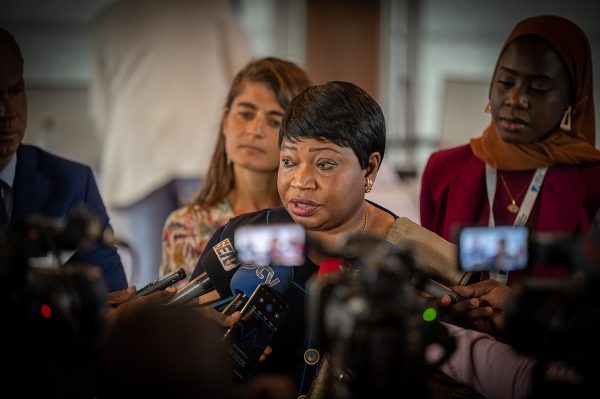
Fatou Bensouda, former Prosecutor of the International Criminal Court, during a conference about international crimes in West Africa, which took place at Dakar (Senegal) in October 2021
The former head of the Mossad, Israel’s foreign intelligence agency, allegedly threatened a chief prosecutor of the international criminal court in a series of secret meetings in which he tried to pressure her into abandoning a war crimes investigation, the Guardian can reveal.
Yossi Cohen’s covert contacts with the ICC’s then prosecutor, Fatou Bensouda, took place in the years leading up to her decision to open a formal investigation into alleged war crimes and crimes against humanity in occupied Palestinian territories.
That investigation, launched in 2021, culminated last week when Bensouda’s successor, Karim Khan, announced that he was seeking an arrest warrant for the Israeli prime minister, Benjamin Netanyahu, over the country’s conduct in its war in Gaza.
The prosecutor’s decision to apply to the ICC’s pre-trial chamber for arrest warrants for Netanyahu and his defence minister, Yoav Gallant, alongside three Hamas leaders, is an outcome Israel’s military and political establishment has long feared.
Cohen’s personal involvement in the operation against the ICC took place when he was the director of the Mossad. His activities were authorised at a high level and justified on the basis the court posed a threat of prosecutions against military personnel, according to a senior Israeli official.
Another Israeli source briefed on the operation against Bensouda said the Mossad’s objective was to compromise the prosecutor or enlist her as someone who would cooperate with Israel’s demands.
A third source familiar with the operation said Cohen was acting as Netanyahu’s “unofficial messenger”.
Cohen, who was one of Netanyahu’s closest allies at the time and is emerging as a political force in his own right in Israel, personally led the Mossad’s involvement in an almost decade-long campaign by the country to undermine the court.
Four sources confirmed that Bensouda had briefed a small group of senior ICC officials about Cohen’s attempts to sway her, amid concerns about the increasingly persistent and threatening nature of his behaviour.
Three of those sources were familiar with Bensouda’s formal disclosures to the ICC about the matter. They said she revealed Cohen had put pressure on her on several occasions not to proceed with a criminal investigation in the ICC’s Palestine case.
According to accounts shared with ICC officials, he is alleged to have told her: “You should help us and let us take care of you. You don’t want to be getting into things that could compromise your security or that of your family.”
One individual briefed on Cohen’s activities said he had used “despicable tactics” against Bensouda as part of an ultimately unsuccessful effort to intimidate and influence her. They likened his behaviour to “stalking”.
The Mossad also took a keen interest in Bensouda’s family members and obtained transcripts of secret recordings of her husband, according to two sources with direct knowledge of the situation. Israeli officials then attempted to use the material to discredit the prosecutor.
The revelations about Cohen’s operation form part of a forthcoming investigation by the Guardian, the Israeli-Palestinian publication +972 Magazine and the Hebrew-language outlet Local Call, revealing how multiple Israel intelligence agencies ran a covert “war” against the ICC for almost a decade.
Contacted by the Guardian, a spokesperson for Israel’s prime minister’s office said: “The questions forwarded to us are replete with many false and unfounded allegations meant to hurt the state of Israel.” Cohen did not respond to a request for comment. Bensouda declined to comment.
In the Mossad’s efforts to influence Bensouda, Israel received support from an unlikely ally: Joseph Kabila, the former president of the Democratic Republic of the Congo, who played a supporting role in the plot.
Revelations about the Mossad’s efforts to influence Bensouda come as the current chief prosecutor, Khan, warned in recent days that he would not hesitate to prosecute “attempts to impede, intimidate or improperly influence” ICC officials.
According to legal experts and former ICC officials, efforts by the Mossad to threaten or put pressure on Bensouda could amount to offences against the administration of justice under article 70 of the Rome statute, the treaty that established the court.
A spokesperson for the ICC would not say whether Khan had reviewed his predecessor’s disclosures about her contacts with Cohen, but said Khan had never met or spoken to the head of the Mossad.
While the spokesperson declined to comment on specific allegations, they said Khan’s office had been subjected to “several forms of threats and communications that could be viewed as attempts to unduly influence its activities”.
Bensouda sparks ire of Israel
Khan’s decision to seek arrest warrants against Netanyahu and Gallant last week marked the first time the court had taken action against leaders of a country closely allied with the US and Europe. Their alleged crimes – which include directing attacks on civilians and using starvation as a method of warfare – relate to the eight-month war in Gaza.
The ICC case, however, dates back to 2015, when Bensouda decided to open a preliminary examination into the situation in Palestine. Short of a full investigation, her inquiry was tasked with making an initial assessment of allegations of crimes by individuals in Gaza, the West Bank and East Jerusalem.
Bensouda’s decision sparked the ire of Israel, which feared its citizens could be prosecuted for their involvement in operations in Palestinian territories. Israel had long been open about its opposition to the ICC, refusing to recognise its authority. Israeli ministers intensified their attacks on the court and even vowed to try to dismantle it.
Soon after commencing the preliminary examination, Bensouda and her senior prosecutors began to receive warnings that Israeli intelligence was taking a close interest in their work.
According to two sources, there were even suspicions among senior ICC officials that Israel had cultivated sources within the court’s prosecution division, known as the office of the prosecutor. Another later recalled that although the Mossad “didn’t leave its signature”, it was an assumption the agency was behind some of the activity officials had been made aware of.
Only a small group of senior figures at the ICC, however, were informed that the director of the Mossad had personally approached the chief prosecutor.
A career spy, Cohen enjoys a reputation in Israel’s intelligence community as an effective recruiter of foreign agents. He was a loyal and powerful ally of the prime minister at the time, having been appointed as director of the Mossad by Netanyahu in 2016 after working for several years at his side as his national security adviser.
As the head of the national security council between 2013 and 2016, Cohen oversaw the body that, according to multiple sources, began to coordinate a multiagency effort against the ICC once Bensouda opened the preliminary inquiry in 2015.
Cohen’s first interaction with Bensouda appears to have taken place at the Munich security conference in 2017, when the Mossad director introduced himself to the prosecutor in a brief exchange. After this encounter, Cohen subsequently “ambushed” Bensouda in a bizarre episode in a Manhattan hotel suite, according to multiple sources familiar with the incident.
Bensouda was in New York in 2018 on an official visit, and was meeting Kabila, then the president of the DRC, at his hotel. The pair had met several times before in relation to the ICC’s ongoing investigation into alleged crimes committed in his country.
The meeting, however, appears to have been a setup. At a certain point, after Bensouda’s staff were asked to leave the room, Cohen entered, according to three sources familiar with the meeting. The surprise appearance, they said, caused alarm to Bensouda and a group of ICC officials travelling with her.
Why Kabila helped Cohen is unclear, but ties between the two men were revealed in 2022 by the Israeli publication TheMarker, which reported on a series of secretive trips the Mossad director made to the DRC throughout 2019.
According to the publication, Cohen’s trips, during which he sought Kabila’s advice “on an issue of interest to Israel”, and which were almost certainly approved by Netanyahu, were highly unusual and had astonished senior figures within the intelligence community.
Reporting on the DRC meetings in 2022, the Israeli broadcaster Kan 11 said Cohen’s trips related to an “extremely controversial plan” and cited official sources who described it as “one of Israel’s most sensitive secrets”.
Multiple sources have confirmed to the Guardian the trips were partly related to the ICC operation, and Kabila, who left office in January 2019, played an important supporting role in the Mossad’s plot against Bensouda. Kabila did not respond to a request for comment.
‘Threats and manipulation’
After the surprise meeting with Kabila and Bensouda in New York, Cohen repeatedly phoned the chief prosecutor and sought meetings with her, three sources recalled. According to two people familiar with the situation, at one stage Bensouda asked Cohen how he had obtained her phone number, to which he replied: “Did you forget what I do for a living?”
Initially, the sources explained, the intelligence chief “tried to build a relationship” with the prosecutor and played “good cop” in an attempt to charm her. The initial objective, they said, appeared to have been to enlist Bensouda into cooperating with Israel.
Over time, however, the tone of Cohen’s contact changed and he began to use a range of tactics, including “threats and manipulation”, an individual briefed on the meetings said. This prompted Bensouda to inform a small group of senior ICC officials about his behaviour.
In December 2019, the prosecutor announced that she had grounds to open a full criminal investigation into allegations of war crimes in Gaza, the West Bank and East Jerusalem. However, she held off launching it, deciding first to request a ruling from the ICC’s pre-trial chamber to confirm the court did indeed have jurisdiction over Palestine.
Multiple sources said it was at this stage, as the judges considered the case, that Cohen escalated his attempts to persuade Bensouda not to pursue a full investigation in the event the judges gave her the green light.
Between late 2019 and early 2021, the sources said, there were at least three encounters between Cohen and Bensouda, all initiated by the spy chief. His behaviour is said to have become increasingly concerning to ICC officials.
A source familiar with Bensouda’s accounts of the final two meetings with Cohen said he had raised questions about her security, and that of her family, in a manner that led her to believe he was threatening her.
On one occasion, Cohen is said to have shown Bensouda copies of photographs of her husband, which were taken covertly when the couple were visiting London. On another, according to sources, Cohen suggested to the prosecutor that a decision to open a full investigation would be detrimental to her career.
Four sources familiar with the situation said it was around the same time that Bensouda and other ICC officials discovered that information was circulating among diplomatic channels relating to her husband, who worked as an international affairs consultant.
Between 2019 and 2020, the Mossad had been actively seeking compromising information on the prosecutor and took an interest in her family members.
The spy agency obtained a cache of material, including transcripts of an apparent sting operation against her husband.
It is unclear who conducted the operation, or precisely what he is alleged to have said in the recordings. One possibility is that he had been targeted by the intelligence agency or by private actors of another country that wanted leverage over the ICC. Another possibility is the information was fabricated.
Once in the possession of Israel, however, the material was used by its diplomats in an unsuccessful attempt to undermine the chief prosecutor. But according to multiple sources, Israel failed to convince its allies of the significance of the material.
Three sources briefed on the information shared by Israel at a diplomatic level described the efforts as part of an unsuccessful “smear campaign” against Bensouda. “They went after Fatou,” one source said, but it had “no impact” on the prosecutor’s work.
The diplomatic efforts were part of a coordinated effort by the governments of Netanyahu and Donald Trump in the US to place public and private pressure on the prosecutor and her staff.
Between 2019 and 2020, in an unprecedented decision, the Trump administration imposed visa restrictions and sanctions on the chief prosecutor. The move was in retaliation to Bensouda’s pursuit of a separate investigation into war crimes in Afghanistan, allegedly committed by the Taliban and both Afghan and US military personnel.
However, Mike Pompeo, then US secretary of state, linked the sanctions package to the Palestine case. “It’s clear the ICC is only putting Israel in [its] crosshairs for nakedly political purposes,” he said.
Months later, he accused Bensouda, without citing any evidence, of having “engaged in corrupt acts for her personal benefit”.
The US sanctions were rescinded after President Joe Biden entered the White House.
In February 2021, the ICC’s pre-trial chamber issued a ruling confirming the ICC had jurisdiction in occupied Palestinian territories. The following month, Bensouda announced the opening of the criminal investigation.
“In the end, our central concern must be for the victims of crimes, both Palestinian and Israeli, arising from the long cycle of violence and insecurity that has caused deep suffering and despair on all sides,” she said at the time.
Bensouda completed her nine-year term at the ICC three months later, leaving it to her successor, Khan, to take up the investigation. It was only after the Hamas attacks on Israel on 7 October and the ensuing war on Gaza that the ICC’s investigation gained renewed urgency, culminating in last week’s request for arrest warrants.
It was the conclusion Israel’s political, military and intelligence establishment had feared. “The fact they chose the head of Mossad to be the prime minister’s unofficial messenger to [Bensouda] was to intimidate, by definition,” said a source briefed on Cohen’s operation. “It failed.”

Over 100 Parliamentarians call on the Foreign Secretary to Defend the Independence of the ICC
“Any attempt to hinder their work would not only undermine accountability for atrocity crimes committed in Gaza but would weaken the rule of law and international justice as a whole.”
Letter to Foreign Secretary David Cameron, signed by 105 Parliamentarians
By Labour Outlook
Following the announcement that the prosecutor of the International Criminal Court, Karin Khan, was seeking arrest warrants for the leaders of Israel and Hamas last week, a cross-party Group of MPs and Lords have written to the Foreign Secretary calling on “the UK Government to do all it can to support the International Criminal Court.”
The letter, organised by Labour MPs Richard Burgon and Imran Hussain and signed by 105 MPs from 11 different political parties, follows the “important decision of the ICC Chief Prosecutor to issue applications for arrest warrants for a number of Israeli and Hamas leaders.”
The Parliamentarians also call on the Foreign Secretary “to condemn any threats and attempts to undermine the independence and impartiality of the International Criminal Court in its investigations into crimes in Gaza” after threatswere issued to the Court in recent weeks including from US senators who warned against there would be sanctions if the ICC issued arrest warrants against Israeli leaders.
The letter also states that “there is mounting evidence that Israel has committed clear and obvious violations of international law in Gaza and strongly believe that those responsible must be held to account.”
The signatories have called on the Government “to take a clear stance against any attempts to intimidate an independent and impartial international court” and shown support for the independence of the court, demanding that “the Court, its Prosecutor, and all its staff must be free to pursue justice without fear or favour. Any attempt to hinder their work would not only undermine accountability for atrocity crimes committed in Gaza but would weaken the rule of law and international justice as a whole.”
Richard Burgon MP, a former Shadow Justice Secretary said:
“While our Government has rightly condemned the war crimes committed by Hamas on 7 October, it has repeatedly refused to condemn the war crimes committed by Israel in Gaza. At every stage, our Government has failed to fulfil its moral duty to do everything it can to help save lives and prevent suffering in Gaza. It must not fail again. It must back the ICC in ensuring that there is no impunity for war crimes and it must stand up to those seeking to impede justice.”
Imran Hussain MP said:
“The International Criminal Court Prosecutor’s decision to pursue arrest warrants for war crimes carried out since October 7th is a vital step towards securing justice for the victims. Our Government must do the right thing, defend the court’s integrity and condemn any attempts to undermine its work. It is clear that Israel is carrying out war crimes and our Government must take a stance for the rules-based order and insist on accountability for those perpetrating war crimes. That is not only key to securing justice but also in helping prevent more crimes.”
You can read a full text of the letter and see the full list of signatories below.
Dear Foreign Secretary,
We write following the important decision of the ICC Chief Prosecutor to issue applications for arrest warrants for a number of Israeli and Hamas leaders.
We urge you to condemn any threats and attempts to undermine the independence and impartiality of the International Criminal Court in its investigations into crimes in Gaza. We also call on the UK Government to do all it can to support the Court in ensuring accountability and justice for the victims of these crimes.
As you know, the International Criminal Court (ICC), governed by the Rome Statute, was established to help end impunity for the perpetrators of the most serious crimes of concern to the international community. The ICC has the mandate to investigate and prosecute individuals for war crimes, crimes against humanity and genocide.
This mandate includes the Situation in Palestine and, since 2021, the Office of the Prosecutor has been investigating crimes alleged to have been committed there by all actors over the past decade.
This investigation includes alleged crimes being carried out in Israel’s current war in Gaza. We believe that there is mounting evidence that Israel has committed clear and obvious violations of international law in Gaza and strongly believe that those responsible must be held to account.
So we are deeply alarmed that earlier this month, the Office of the Prosecutor felt compelled to issue a statement calling for “all attempts to impede, intimidate or improperly influence its officials cease immediately.” While the Prosecutor’s Office did not explicitly refer to threats made following press reports about the potential issuing of arrest warrants for crimes committed in Gaza, the context was clear.
It is vital that the Government takes a clear stance against any attempts to intimidate an independent and impartial international court. Not only could such actions be a crime under Article 70 of the Rome Statute, but they would be a blatant attempt to prevent accountability and to impede justice.
The Court, its Prosecutor, and all its staff must be free to pursue justice without fear or favour. We hope you agree that any attempt to hinder their work would not only undermine accountability for atrocity crimes committed in Gaza but would weaken the rule of law and international justice as a whole. It is therefore essential that the Government works to prevent this.
Yours sincerely,
Richard Burgon MP and Imran Hussain MP
Diane Abbott MP
Debbie Abrahams MP
Tahir Ali MP
Rosena Allin-Khan MP
Hannah Bardell MP
Paula Barker MP
Órfhlaith Begley MP
Apsana Begum MP
Olivia Blake MP
Baroness Christine Blower
Steven Bonnar MP
Mickey Brady MP
Deidre Brock MP
Alan Brown MP
Baroness Pauline Bryan
Dawn Butler MP
Ian Byrne MP
Liam Byrne MP
Stuart C McDonald MP
Amy Callaghan MP
Baroness Shami Chakrabarti
Douglas Chapman MP
Joanna Cherry KC MP
Jeremy Corbyn MP
Ronnie Cowan MP
Baroness Caroline Cox
Lord Bryn Davies
Martyn Day MP
Marsha De Cordova MP
Dave Doogan MP
Allan Dorans MP
Lord Alf Dubs
Lord Hugh Dykes
Colum Eastwood MP
Stephen Farry MP
Marion Fellows MP
John Finucane MP
George Galloway MP
Barry Gardiner MP
Patricia Gibson MP
Michelle Gildernew MP
Patrick Grady MP
Peter Grant MP
Claire Hanna MP
Chris Hazzard MP
Drew Hendry MP
Lord John Hendy
Kate Hollern MP
Rachel Hopkins MP
Rupa Huq MP
Lord Qurban Hussain
Baroness Meral Hussein-Ece
Kim Johnson MP
Mary Kelly Foy MP
Afzal Khan MP
Ian Lavery MP
Chris Law MP
Clive Lewis MP
Baroness Ruth Lister
Mark Logan MP
Rebecca Long Bailey MP
Caroline Lucas MP
Kenny MacAskill MP
Rachael Maskell MP
Paul Maskey MP
Andy McDonald MP
John McDonnell MP
Anne McLaughlin MP
Ian Mearns MP
Baroness Nosheena Mobarik
Francie Molloy MP
Carol Monaghan MP
Grahame Morris MP
Gavin Newlands MP
Brendan O’Hara MP
Kate Osamor MP
Kate Osborne MP
Sarah Owen MP
Jess Phillips MP
Anum Qaisar MP
Yasmin Qureshi MP
Bell Ribeiro-Addy MP
Marie Rimmer MP
Baroness Margaret Ritchie
Lloyd Russell-Moyle MP
Liz Saville Roberts MP
Naz Shah MP
Tommy Sheppard MP
Lord Prem Sikka
Lord Indarjit Singh
Chris Stephens MP
Zarah Sultana MP
Sam Tarry MP
Alison Thewliss MP
Owen Thompson MP
Richard Thomson MP
Jon Trickett MP
Baroness Manzila Uddin
Claudia Webbe MP
Philippa Whitford MP
Mick Whitley MP
Nadia Whittome MP
Beth Winter MP
Lord Tony Woodley
Mohammad Yasin MP
- Richard Burgon is the MP for Leeds East, the Secretary of the Socialist Campaign Group of Labour MPs and a regular contributor to Labour Outlook. You can follow him on Facebook, Twitter and Instagram.
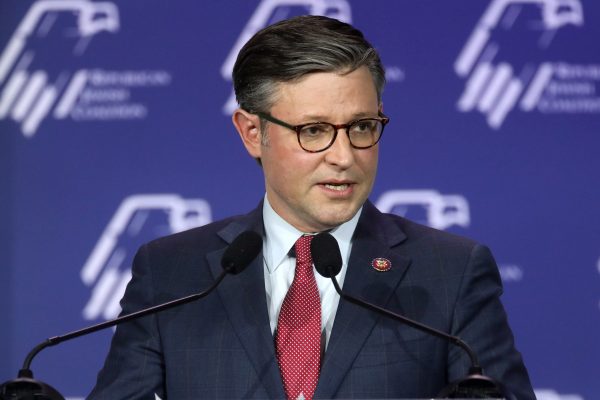

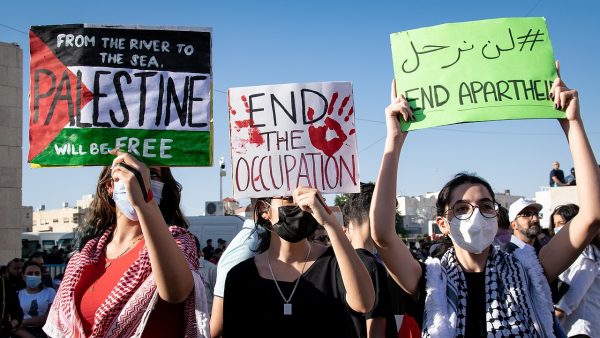
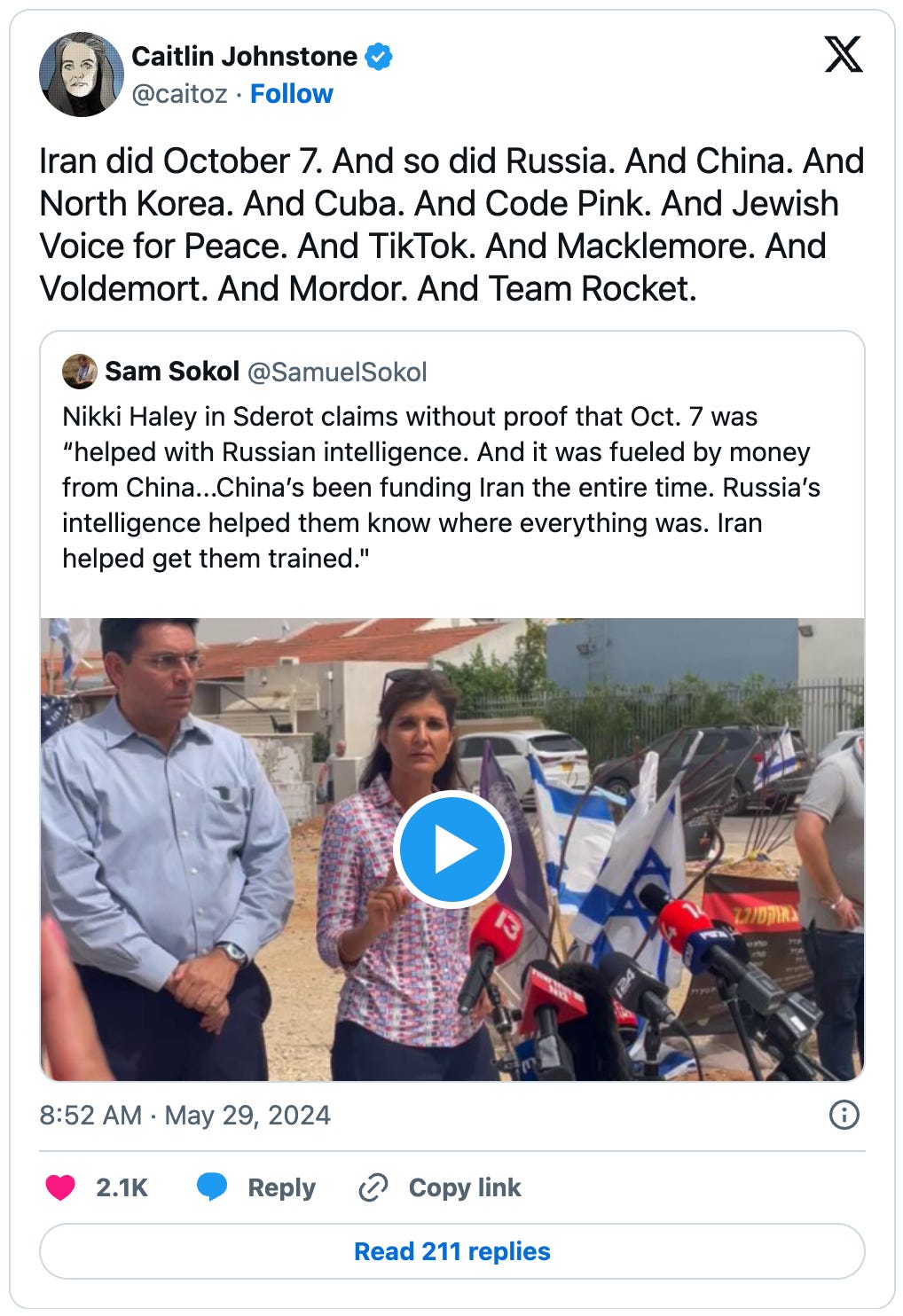

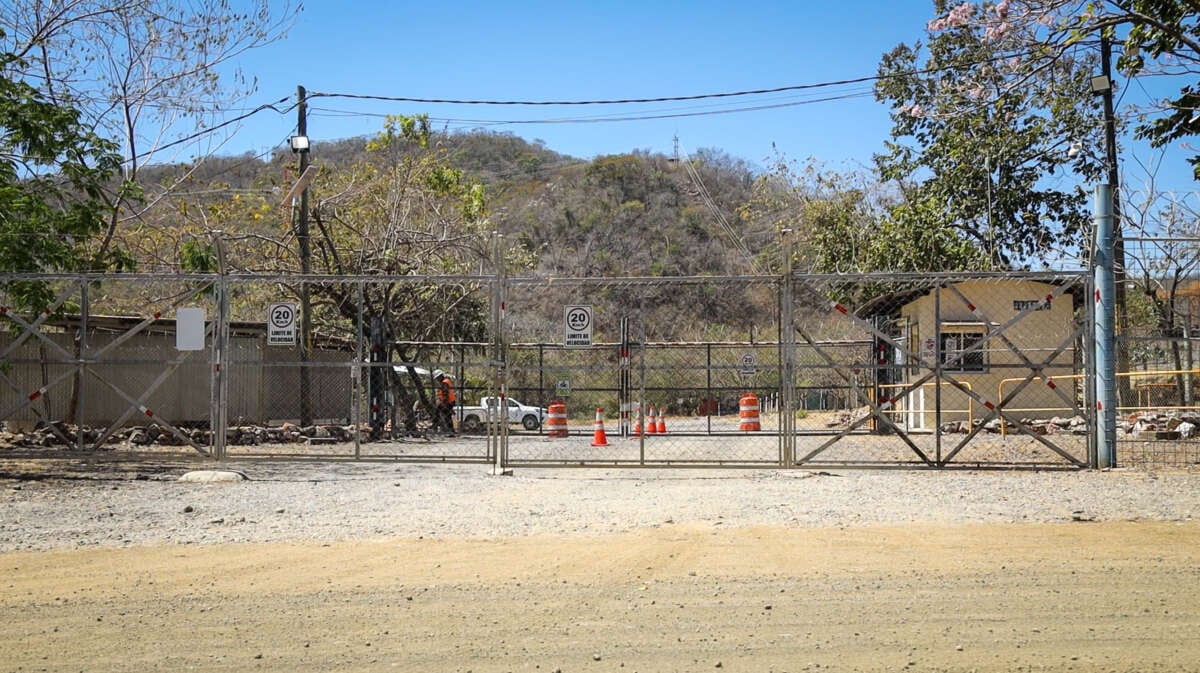 If the open pit Cerro Blanco mine goes through, it will engulf the entire area around the front gate to the mine.Michael Fox
If the open pit Cerro Blanco mine goes through, it will engulf the entire area around the front gate to the mine.Michael Fox Y
Y